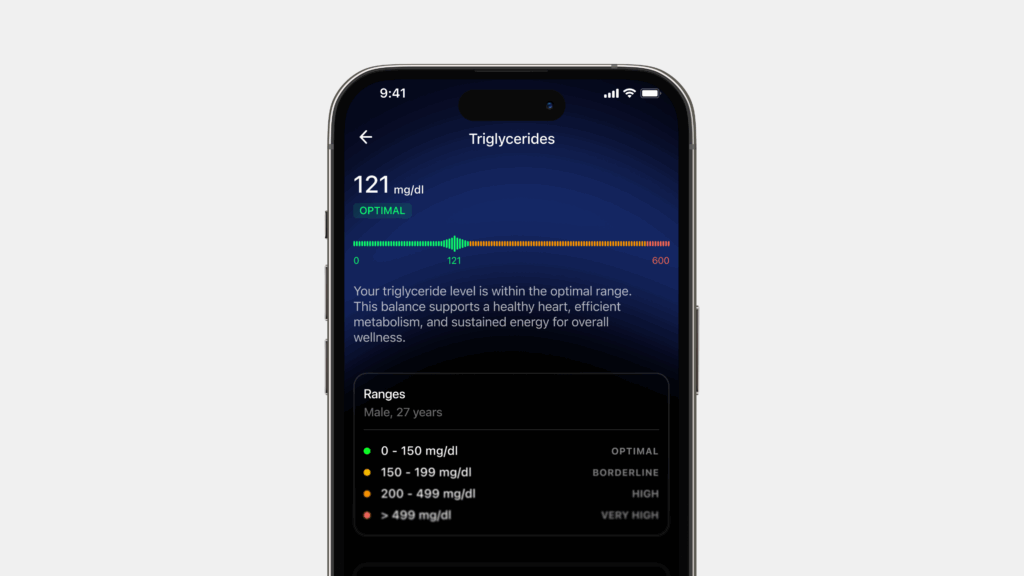Could drinking hot water reduce your blood glucose levels? It’s a pervasive myth for diabetics and those watching their blood sugar, but it’s not strictly true.
However, drinking water and maintaining good hydration are critical to the management of blood glucose. And the science points to some interesting indirect effects when it comes to drinking water and its effect on blood sugar.
In this article, we’ll explore how hot water affects metabolism, its potential role in blood sugar control, and whether it can be a useful tool for maintaining stable glucose levels.
Highlights
- Hydration is essential for insulin function and glucose metabolism, regardless of temperature.
- While hot water alone won’t lower blood sugar, it may aid metabolic efficiency when combined with healthy habits.
The link between hydration and blood glucose
The human body needs water to carry out important functions like moving glucose (sugar) into cells and helping insulin work properly. Without enough water, these processes slow down.
Dehydration is a form of physiological stress. When the body is under stress, it automatically releases more sugar into the bloodstream, assuming it needs extra fuel to deal with the situation. This can cause blood sugar levels to rise even without food intake.
At the same time, dehydration makes it harder for the kidneys to flush out excess sugar through urine. As a result, more sugar stays in the bloodstream, creating a circular pattern where dehydration raises blood sugar and high blood sugar further contributes to dehydration.
Drinking more water may help reduce diabetes risk, as per a 2018 study published in the Journal of Clinical Endocrinology & Metabolism.
The 31 healthy adults with high copeptin (a marker of dehydration and diabetes risk) levels drank 1.5 L of water daily for 6 weeks. The study found that increasing water intake significantly lowered fasting blood sugar levels, especially in people who were more dehydrated at the beginning.
How hot water affects metabolism

There is currently no strong scientific evidence showing that drinking hot water directly lowers blood sugar levels. However, it may offer indirect benefits that can support overall blood glucose control. For example, the benefits of drinking warm water include better digestion and circulation that can help the body absorb nutrients and glucose more efficiently, which might help stabilize blood sugar levels.
Drinking warm fluids may help digestion by stimulating the stomach to work better. A study found that drinking warm water after gallbladder surgery helped the intestines start working again sooner, leading to faster bowel function recovery.
While most studies focus on warm water, other warm fluids likely offer similar benefits, especially if they are non-caffeinated and gentle on the stomach. A common question is: does drinking warm water before bed help with blood sugar?
It won’t lower blood sugar on its own, but it may boost metabolic efficiency when combined with healthy habits.
Drinking warm fluids may improve circulation, which can support the delivery of nutrients and glucose throughout the body. Better blood flow means the digestive system and other organs get the support they need to work as they should
Additionally, warm liquids may cause a mild thermogenic effect, meaning they can slightly raise metabolic rate. This happens because the body works to balance the internal temperature after consuming something warm, potentially supporting metabolism and energy use.
Animal studies also suggest that drinking warm water can improve growth and gut health, though further research is needed to confirm these effects in humans. In a study with rabbits, those that drank warm water gained weight faster and had a lower risk of diarrhea compared to rabbits that drank cold water. While the overall diversity of gut bacteria didn’t change, the warm water group had higher levels of certain bacteria linked to lower inflammation.
It’s not just hot water that may indirectly affect blood sugar. Another study showed that drinking cold water (2°C) before a meal helped healthy young men eat less, compared to drinking warm or hot water. The study concluded that cold water slowed down stomach movements, which may explain the lower food intake.
Conclusion
Hot water and blood sugar may not have a direct link, but staying hydrated with fluids can support better digestion and overall glucose management. When the body is dehydrated, it becomes stressed, which can cause blood sugar to rise. So, drinking water of any temperature is a healthy routine can help support better overall health and metabolism.
Warm water could offer indirect metabolic benefits. It’s linked to improved digestion, which could contribute to overall better health.
However, it’s important to remember that effectively managing blood glucose levels depends on lifestyle factors like a balanced diet, regular exercise, and quality sleep. So, while hot water may play a small role in supporting these processes, the focus should remain on maintaining a healthy lifestyle for proper blood sugar control.








